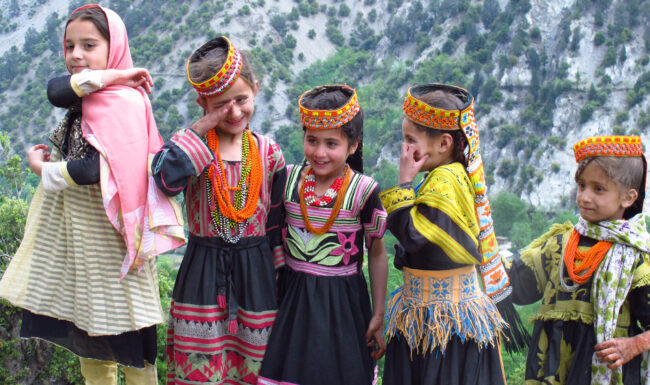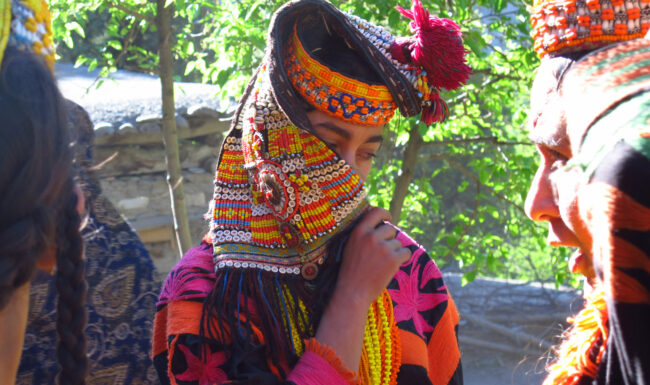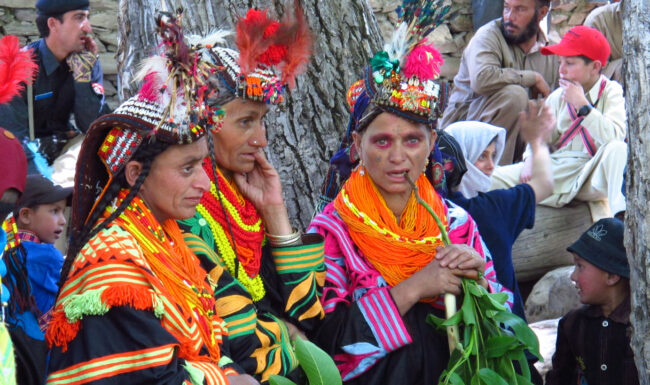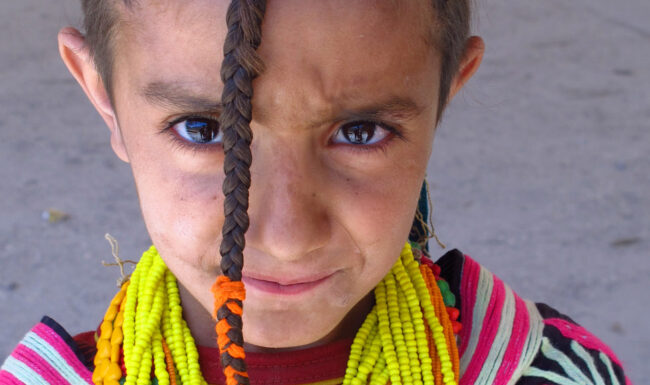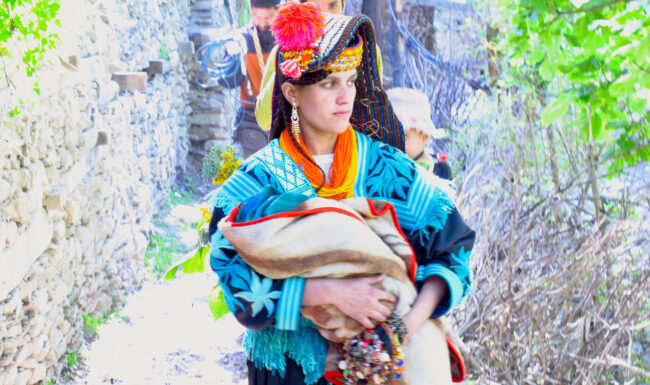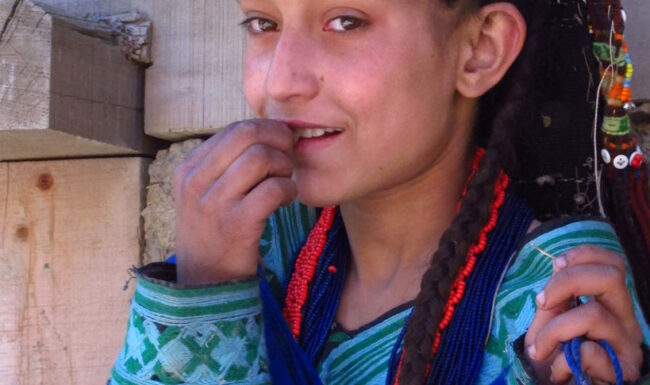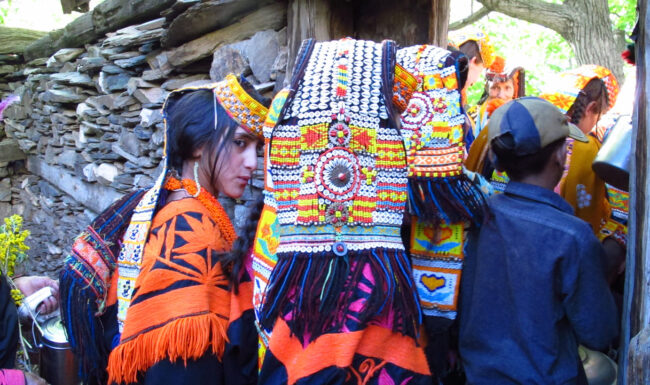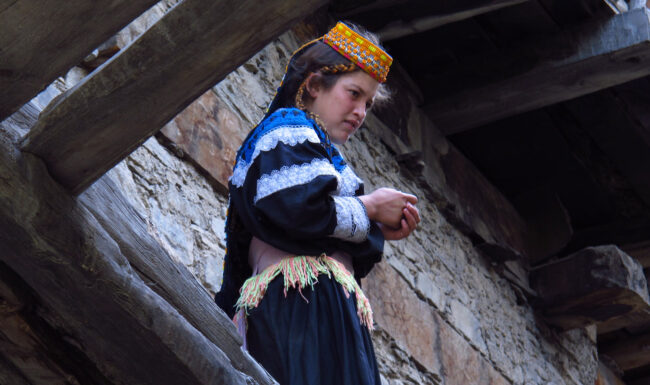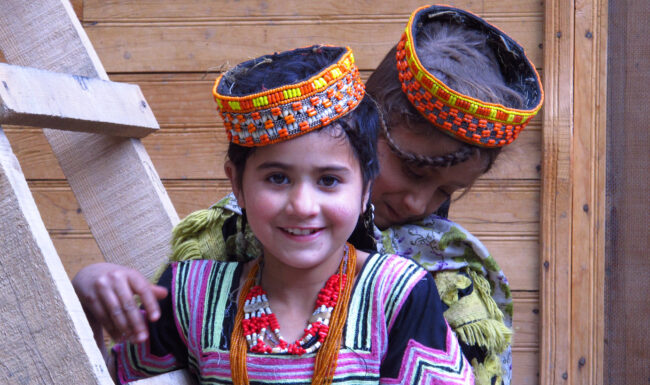CULTURES OF RESISTANCE FILMS PRESENTS
THE KALASHA AND THE CRESCENT

Iara Lee’s 2013 short film The Kalasha and the Crescent documents the challenges faced by the Kalash people of northern Pakistan, who are struggling to retain their cultural identity under the combined pressures of poverty, tourism, and religious tension.
FULL FILM
The film is also available on Vimeo.
FILM SYNOPSIS
Directed by Iara Lee
Rumored to be the descendants of Alexander the Great, the Kalash people have in fact inhabited northern Pakistan’s Chitral valley since long before the legendary conqueror came to the region. They uphold a rich cultural heritage, with polytheistic beliefs, seasonal festivals, and a variety of other traditions that are at odds with Pakistan’s dominant Islam. Today, even as the majestic peaks of the Hindu Kush mountains shield the Kalasha from the region’s worst violence, their culture faces a variety of pressures: poverty, tourism, and Islamism are all contributing to the erosion of Kalash identity. Still, a dedicated group of Kalash advocates are fighting to keep their culture alive.
In May 2013, director Iara Lee traveled to the Chitral valley to document the Kalash spring festival, Joshi. The Kalasha and the Crescent uses the festival as an entry point into this vibrant community and the tough questions facing it. What does conversion to Islam—whether forced or spontaneous—mean for Kalash identity? Can Kalash traditions withstand the challenges brought by globalization on the one hand and by religious tensions on the other? Join members of the Kalash community and observers from around the world as they reckon with these questions.
A high-resolution version of The Kalasha and the Crescent is available for screenings and community discussion: email info [at] culturesofresistance.org if you would like to organize an event in your area.
SYNOPSIS (FRANÇAIS)
Réalisée par Iara Lee
Ce film dépeint le portrait touchant et exaltant du peuple Kalash du nord du Pakistan. Cette communauté minoritaire ne s’inscrit pas dans la logique de la religion dominante du pays, tout comme leurs voisins zoroastriens en Iran. Les pressions de conversion sont de sérieuses menaces au patrimoine riche de ce peuple, pratiquant un polythéisme antique désapprouvé par l’Islam régnant. S’ajoute à cela le fléau d’un tourisme à la progression importante. Même si celui-ci permet de relayer la problématique au-delà des confins de la vallée de l’Hindu Kush, ce phénomène intrusif et indésirable menace, lui, l’intégrité et le droit à l’intimité de la région. Entre ces deux maux qui semblent s’équivaloir, les Kalash œuvrent implacablement pour préserver leurs mœurs et leur identité.
Par Adi Chesson

Photo by iara lee.
FOR THE PRESS

Director Iara Lee and her team are available for interviews, as are several leading advocates for the preservation of Kalash culture featured in the film. Please email info [at] culturesofresistancefilms.com with any inquiries.
To download a high-resolution version of the postcard image, click here.

